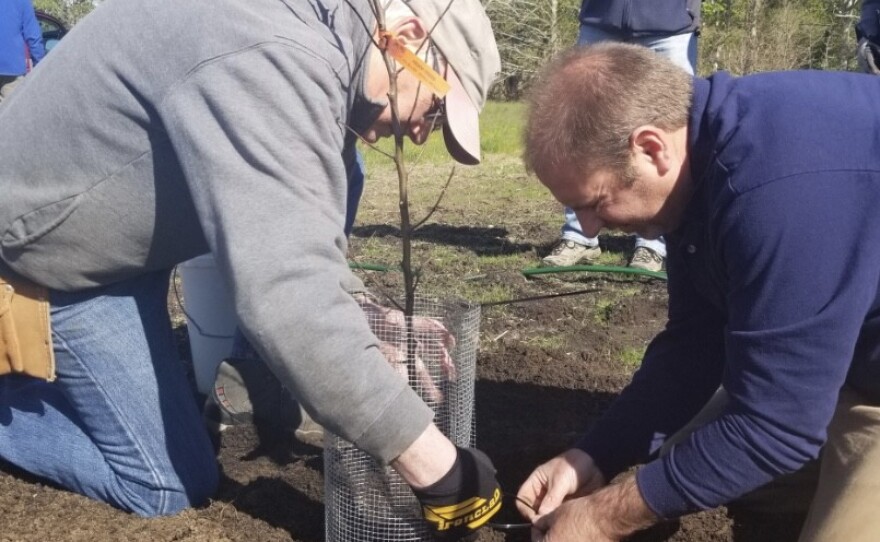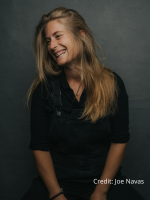Viki: Next up, the Local Food Report with Elspeth Hay. This week, a Brewster man is inspired to spread the joys of apple farming.
Twenty years ago, Hal Minis of Brewster bought an old farm in Down East Maine where he spends time in the summer season.
H: And it came with this old orchard, it was an old farmstead. And the apple trees were in terrible condition, all overgrown and stunted, and so I decided to learn how to really take care of apple trees. And in doing that, I found how resilient apple trees are, because they’ve come back very nicely, and how diverse they are.
One of the things that struck Hal right away as he worked to restore this old orchard was how many different varieties of apples the original homeowners had planted.
H: They way they were used 150, 200 years ago, they were the mainstay of household production. So I found that there are trees that were obviously used for cider, trees that were used for animal feed, pies, trees that stored best so that there would be fruit over the winter and the next spring, and of course fruit for eating right away. And all of those different characteristics meant different trees.
Hal became fascinated by apple varieties and their historic uses. He learned about a Maine apple guru named John Bunker who wrote a whole book inventorying heirloom apple varieties, and Hal read up until he figured out how to tell the apples on his land apart and what to do with them.
H: And it’s so much fun learning about that that I decided that it’d really be fun in Brewster on this agricultural land here to create a small orchard that’s really educational in purpose. Wanted to show people different varieties of apples, how they grow, how they’re different and when they mature what they look like, what they taste like, and what purposes they’re good for, and also how you tend apple trees.
Hal convinced the Brewster Conservation Trust to set aside some land at the Town’s Eddy Sisters property, where he helped put in a demonstration orchard both for fruit production and for learning.
H: We have seven different trees that show seven different characteristics. Five of them are standard size, so they’ll grow into what you think of as a regular big apple tree, and two of them are dwarf, so they’ll be smaller and that’s a little more contemporary apple production.
Some of the apple varieties they’ve planted come in both standard and dwarf size, for instance Grime’s Golden.
H: It’s been in Maine orchards for over a hundred years. It’s a yellow apple, as the golden names says, UM crisp, dense, UM good for both dessert and cooking. Then we have this is one of my favorites the Fameuse, or the snow, which came from Canada before 1700 so it’s one of the oldest known apples in the Northeast. It’s great for eating, beautiful white flesh, great taste, and it’s also good for applesauce, but you can’t use it for pies because it falls apart and it doesn’t store so well.
The list goes on, with cider and storage apples called Cox’s Orange Pippin, Baldwin, and William’s Pride and Hal says he hopes that seeing this diversity will inspire his community to tend, harvest, and celebrate not only this orchard, but also, other local apple trees.
H: There are a lot of apple trees here in Brewster. A lot of them are neglected, but they can be brought back.
And of course, anyone with the space can also plant new trees. For CAI’s Local Food Report, I’m Elspeth Hay.
Viki: Speaking of trees, Elspeth has a new book out called Feed Us with Trees: Nuts and the Future of Food. You can learn more about that and about the Brewster Conservation Trust’s educational apple orchard on our website, at cape and islands dot org, where you can also find a link to our free podcast. This Local Food Report was edited by me, Viki Merrick, and produced by Atlantic Public Media in Woods Hole. Thanks for listening.









